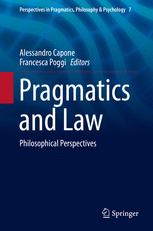

Most ebook files are in PDF format, so you can easily read them using various software such as Foxit Reader or directly on the Google Chrome browser.
Some ebook files are released by publishers in other formats such as .awz, .mobi, .epub, .fb2, etc. You may need to install specific software to read these formats on mobile/PC, such as Calibre.
Please read the tutorial at this link: https://ebookbell.com/faq
We offer FREE conversion to the popular formats you request; however, this may take some time. Therefore, right after payment, please email us, and we will try to provide the service as quickly as possible.
For some exceptional file formats or broken links (if any), please refrain from opening any disputes. Instead, email us first, and we will try to assist within a maximum of 6 hours.
EbookBell Team

4.8
74 reviewsThis volume highlights important aspects of the complex relationship between common language and legal practice. It hosts an interdisciplinary discussion between cognitive science, philosophy of language and philosophy of law, in which an international group of authors aims to promote, enrich and refine this new debate.
Philosophers of law have always shown a keen interest in cognitive science and philosophy of language in order to find tools to solve their problems: recently this interest was reciprocated and scholars from cognitive science and philosophy of language now look to the law as a testing ground for their theses.
Using the most sophisticated tools available to pragmatics, sociolinguistics, cognitive sciences and legal theory, an interdisciplinary, international group of authors address questions like: Does legal interpretation differ from ordinary understanding? Is the common pragmatic apparatus appropriate to legal practice? What can pragmatics teach about the concept of law and pervasive legal phenomena such as testimony or legal disagreements?